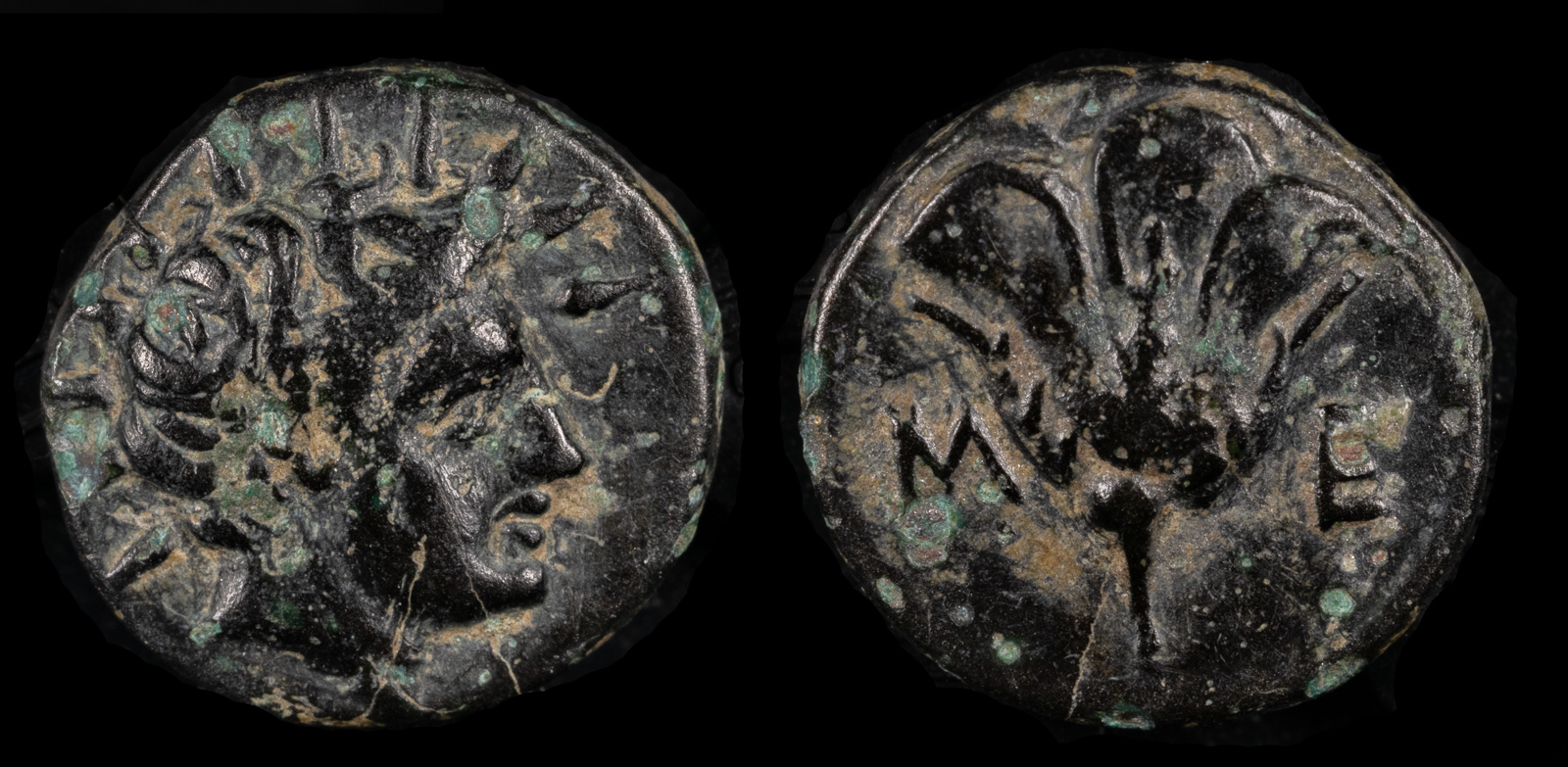
Memnon of Rhodes
Mysia, Lampsakos Mid 4th century BCE
Æ 8mm, 0.62g
Youthful radiate head of Helios to right. Rev. M – E Rose
Ashton, Memnon 1 (A1/P1). SNG BN –
Had Memon of Rhodes received the power he’d requested, Alexander‘s stay in Asia Minor may have been brief. Easily Alexander‘s toughest foe, Memnon was a Greek but remained loyal to Darius III.
When Alexander‘s forces arrived, it was Memnon who urged a scorched earth campaign against him. He knew their forces would lose in a direct encounter, but they could use the land against them by burning the crops and preventing Alexander‘s army from anything useful.
Then, Memnon wanted to take the fight to Alexander by fomenting rebellions in many of the Greek cities, especially Sparta. Yet the other Persian satraps weren’t for this plan. They felt it was foolish to devastate their own satrapies rather than face Alexander head-on.
So, despite Memnon’s many objections, they met at the Battle of the Granicus and were soundly defeated. On the positive side, this convinced Darius III to give complete command to Memnon.
Memnon and Alexander had their main lengthy encounter at the Siege of Halicarnassus. There, Memnon harassed his forces for some time, including burning their siege engines, before he eventually burned his own city and departed. Although Alexander won the siege, it didn’t feel like a victory.
After that, Memnon went on with his plan to start rebellions. However, in a huge stroke of luck to Alexander, Memnon died during a siege of Mytilene. With his top general out of the way, even Darius knew this was the beginning of the end.
Approximate birth of Memnon of Rhodes, presumably in Rhodes.
Revolt of Artabazos II with Mentor and Memnon of Rhodes as his generals.
Either Memnon of Rhodes or his brother Mentor capture Hermeios, tyrant of Atarneos, and put him to death.
After the death of his brother, Mentor, Memnon of Rhodes marries his widow Barsine.
Memnon of Rhodes is tasked by Darius III with taking Kyzikos and nearly does. It is defended by Kalas.
Alexander the Great besieges and eventually takes Halikarnassos, which is strongly defended by Memnon of Rhodes.
Memnon of Rhodes urges Darius III to foster a rebellion in Greece, but Darius refuses out of distrust for Memnon since he is Greek.
Autophradates leads the Aegean fleet of Persia under the supreme command of Memnon of Rhodes. Azemilkos of Tyre accompanies him.
Memnon of Rhodes dies during a siege of Mytilene.
Memnon of Rhodes captures Methymna.